Life in the USSR: they didn’t change their linen for weeks, and instead of soap they rubbed themselves with ash - a lie and nothing more!
If you believe various resources on the Internet, it turns out that the citizens of the USSR were still dirty - they wore dirty clothes, did not smell particularly pleasant, and instead of soap they used body ash and brushed their teeth with chalk. However, it is very offensive that someone would accept and believe such information, and even pass it on “inheritedly” to their children. So we will think that in the Soviet Union there was a complete lack of hygiene, but was this really so?
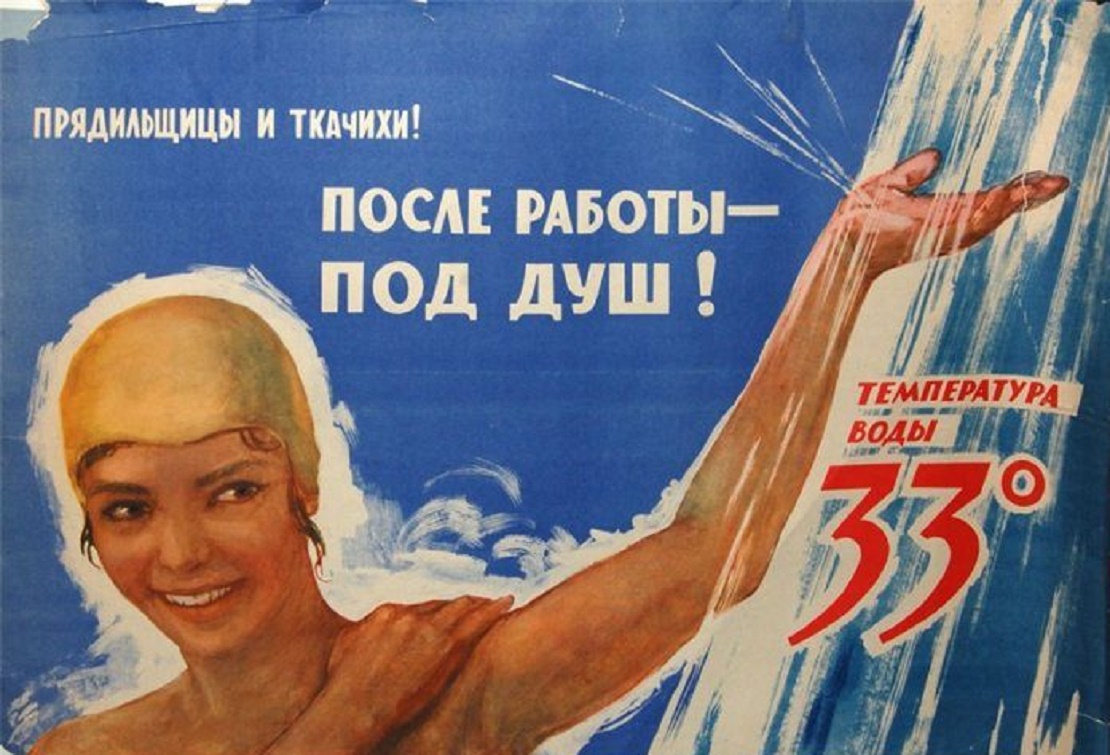
Hygiene in the USSR - where is the truth and where is the lie?
Indeed, in the 60s the concept of a “private bathroom” was almost completely absent. People lived either in communal apartments or in barracks. And if in the first case, although there was a bath, it was shared by several families, then in the second, things were completely unimportant with the adoption of water procedures.
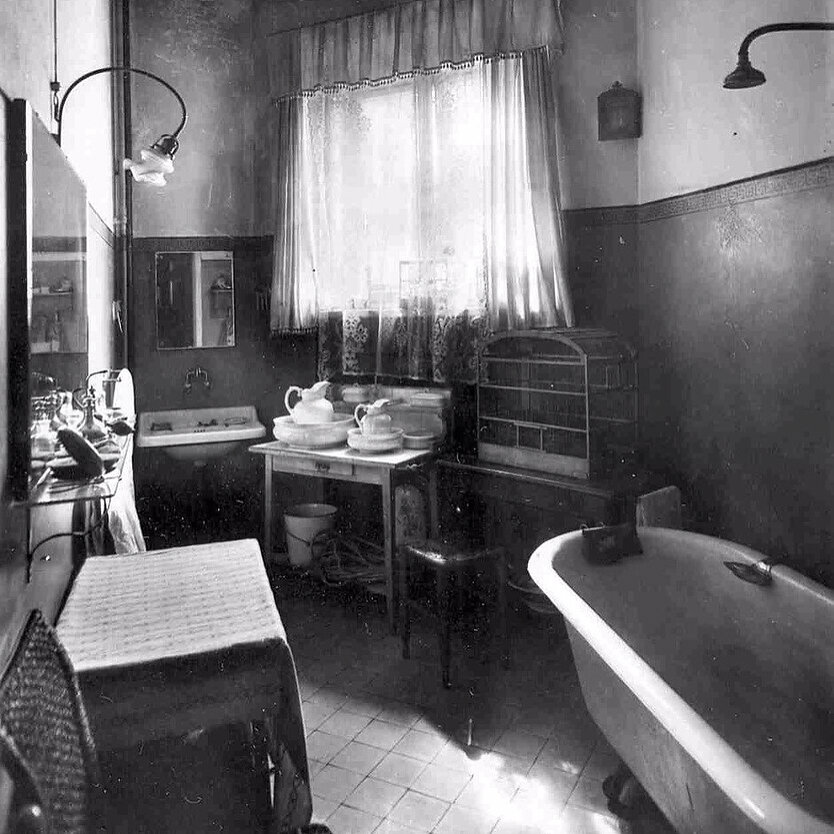
But these problems have never been an obstacle for a citizen. Firstly, for people who lived in houses without amenities, there were baths, albeit public ones. Moreover, residents of comfortable apartments also preferred to wash there, which seemed rather strange. However, this ritual of visiting steam rooms has survived to this day. Well, what Russian would refuse to visit a bathhouse with brooms, steam rooms, and intimate conversations with friends with similar interests?!
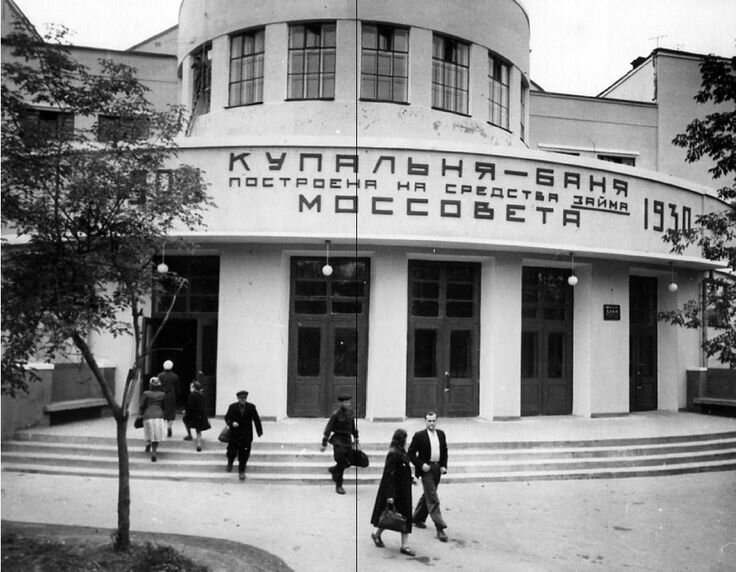
Secondly, if there was no bath at home, then people fenced off a corner in the kitchen and placed at least a basin there, into which they could draw warm water and wipe their body after a working day.
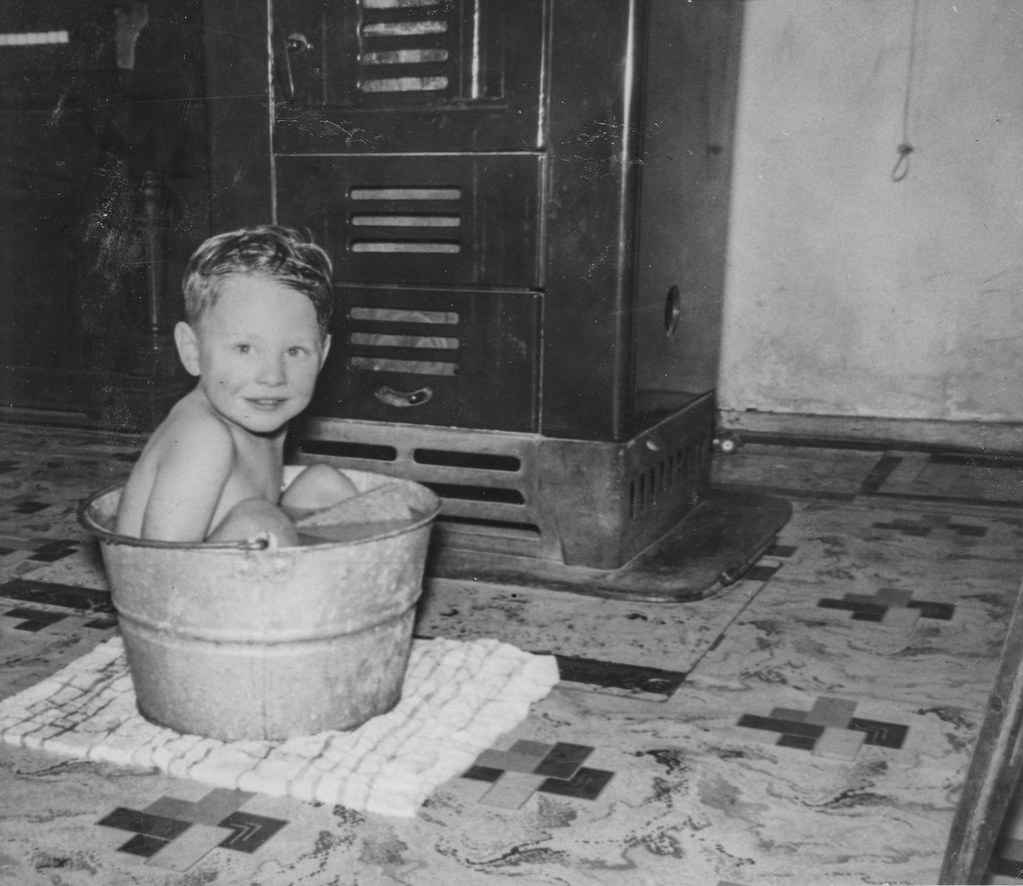
Thirdly, the Soviet citizen always kept his clothes clean.Laundry day was usually scheduled for some weekend, and the whole family was immersed in this very complex event, which lasted from morning to evening.
By the way, if you still think that in the USSR they changed linen very rarely, then you can remember the procedure for boiling bed sheets, towels, and underwear - it is unlikely that a person who does not monitor cleanliness would have thought of such a method of disinfection.
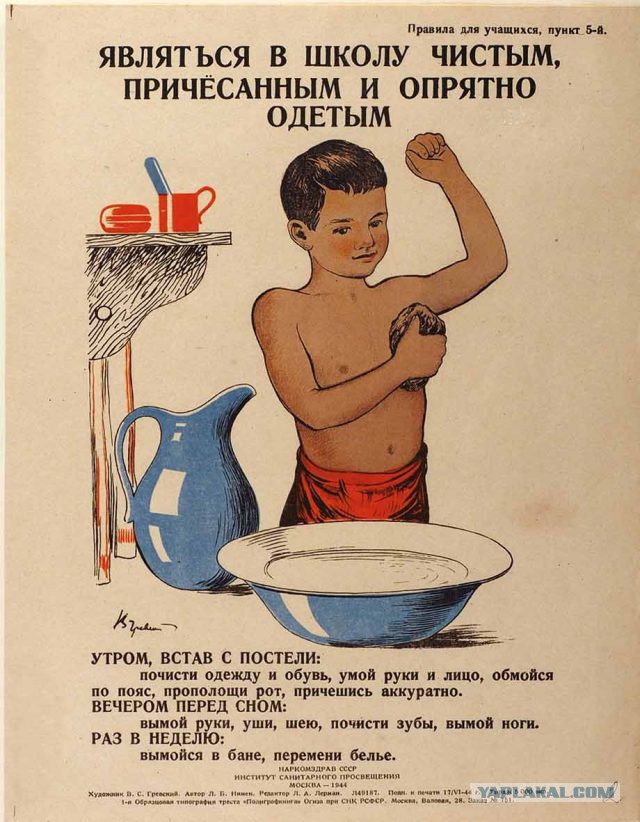
As for wiping with ash, this is only partly true. And it is not ash that appears in this matter, but ash lye - a natural substance obtained as a result of a decoction or infusion of wood ash. To use it on the farm, it had to be diluted with water. This product was especially popular in villages where houses were heated by stoves - it was easy to get ash, and therefore people quickly found a use for it. Moreover, they used it not only for the body, but also for laundry, washing hair, and dishes.
The lye could also be diluted with a herbal decoction - the skin after this product was soft, without a feeling of tightness.
In addition, a lot of literature was published in the USSR about the importance of body hygiene, and enterprises had their own showers in which workers could wash themselves after a day of work.
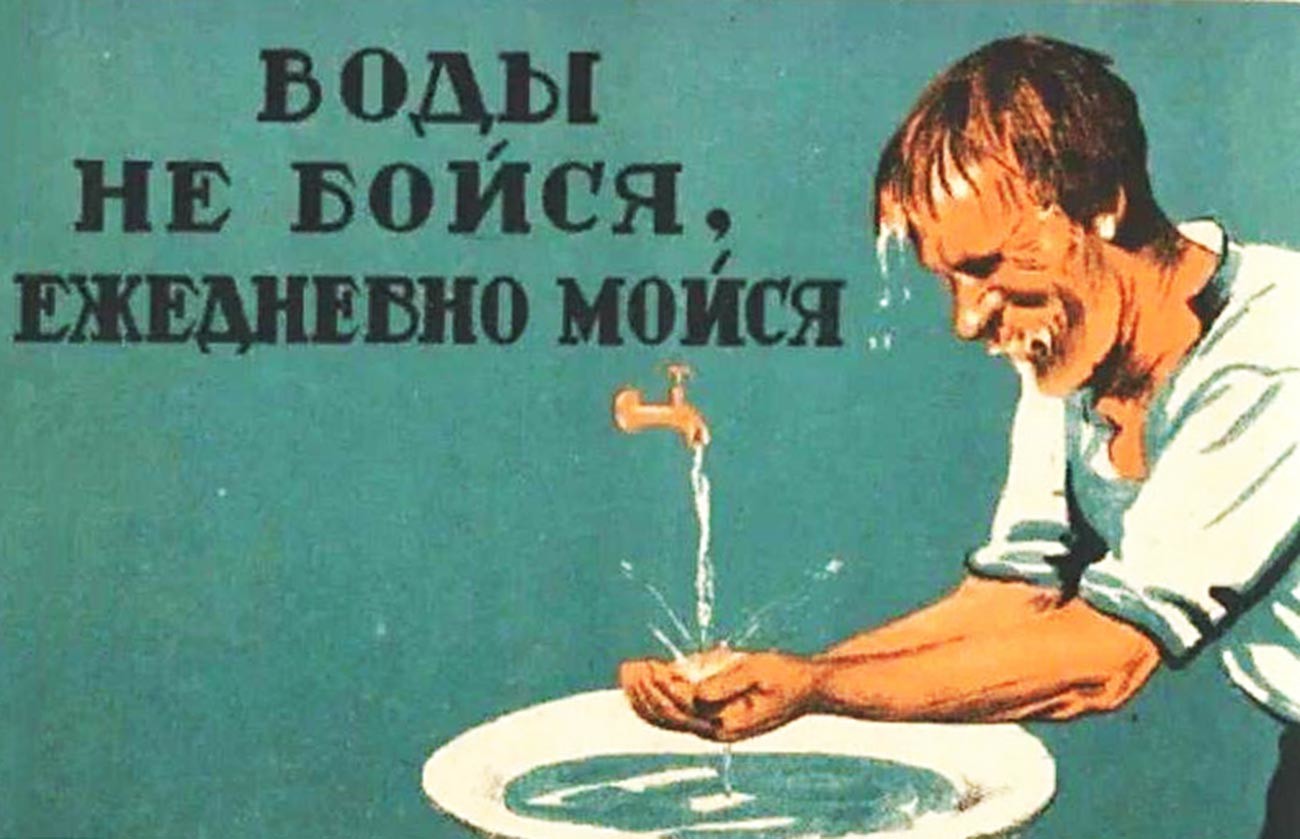
By the way, they say that citizens of the USSR washed themselves once a week, but this is also partly true. But this applies to, so to speak, global washing - with a hard brush and washing your hair. On other days, people necessarily washed themselves with water, just not so radically and thoroughly.
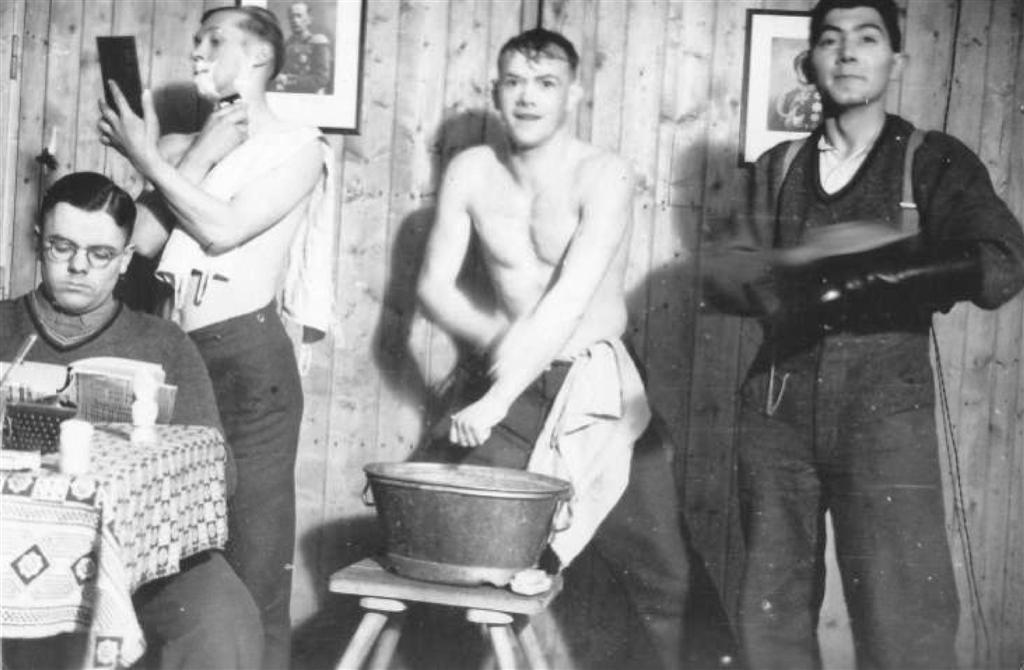
If we talk about toothpaste, it really was chalk, but finely ground. Already in the 70s, the first toothpastes with mint appeared - “Lesnaya”, “Zhemchug” and “Cheburashka”. They were made on the basis of natural substances, but did not foam at all, like modern teeth cleaning products.
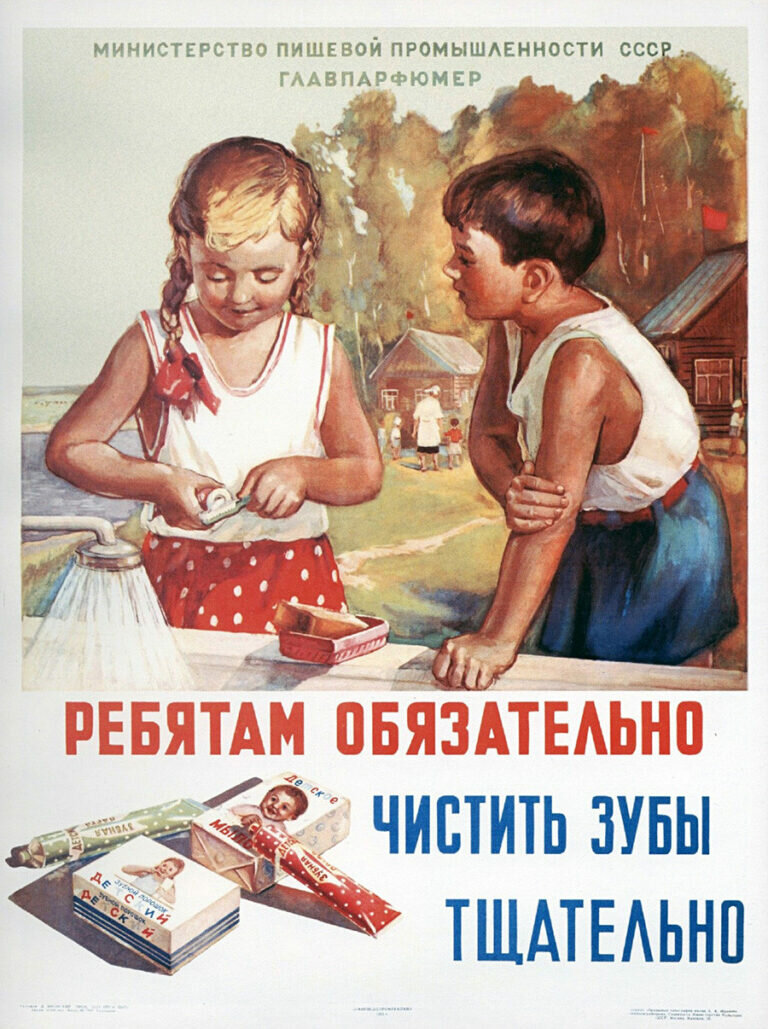
To summarize, we can say that all the information about the insufficient hygiene of a citizen of the USSR is almost a complete lie. People attached great importance to the cleanliness of their bodies. Just look at the book “Moidodyr” by Korney Chukovsky, which the world saw back in 1923. Now think about it: is it true when they say that people walked around dirty and didn’t take care of themselves at all, even if children’s literature loudly called for hygiene procedures!
Memories of my grandmother, 41-45, mobilized to one of the factories in the city of the Urals. First a machine operator, then a maintenance worker, after a serious illness from malnutrition, lack of sleep, etc., she took on light work as a seamstress in military uniforms, etc. Throughout the war, they washed and washed: silk, sand and a rolling pin. When asked about soap coupons, it was only for shock workers and superiors who exceeded the plan. Based on the book
Our local historian-historian, the local authorities distinguished themselves by refusing to supply soap from other regions to meet the needs of military factory workers. We received thanks. orders, prizes for
The heroism of the people is always worth the crime of the leadership.
Is it true.In the USSR (and before that in the Russian Empire) they didn’t wash, they walked around dirty. Clothes were not washed. They didn’t wear underwear at all, because there was none; they didn’t know how to make it in the USSR.
Only the teeth were brushed with charcoal, and the face and body were rubbed with chalk (and not vice versa, as is written in the article). Yes, and the teeth were also rubbed with pumice or stone (polished so that they shine).
Who said that, please enlighten me.
The way they washed laundry back then {and it was white} no one can do now, they soaked it when there were no machines yet, washed it by hand, boiled it, then blued it with starch, washed it outside even in the cold. The result was snow-white, fresh-smelling linen. The same goes for men's shirts, before the advent of nylon ones. And they washed themselves, and did not splash themselves with deodorants, as they often do now. And there was soap and toothpaste, in the 70s you could even buy Finnish tricolor.
An acquaintance told how his parents suffered without soap and an incident from life in his family... one relative brought a suitcase to them, and he worked as the head of the district consumer cooperation, it was the end of the 50s, they had some kind of checks at work, so they looked into suitcase, there is one soap in the suitcase, laundry. In general, he came to him and demanded that 5 pieces be ordered from the warehouse. soap, he ordered it, but you don’t want to sit anywhere... and you say that everything was fine, already in the mid-60s the soap became more or less available, household items were available in stores.
It is clear that if there were no problems with hygiene, there would be no need to issue so many propaganda posters. I'll tell you what I found.Since many did not have not only hot water, but also running water (water was carried from pumps in buckets), they did not even dream of a daily shower or bath. We went to a public bathhouse, usually once a week. My family lived in Siberia and I didn’t see a bathtub at all until the second grade. Life somehow regulated everything itself: those who worked hard in factories had the opportunity to take a shower after their shift. White collar workers washed themselves “in parts” at home. They actually brushed their teeth with chalk, albeit crushed into powder. That's what it was called: tooth powder. In the lower grades of school, the attendant checked the cleanliness of the hands and neck (rarely). In the army, washing in a bathhouse once a week was enshrined in the internal service regulations; only cooks and bakers were entitled to a shower on each shift. This custom has survived to this day: only under Shoigu they began to install showers in the barracks; before that there were only washbasins and a place for washing feet. To be honest, I don’t remember how often they changed their underwear, but the men definitely didn’t do it every day. I suspect that for Soviet women the Polish “week” panties were a big discovery: 7 pieces with the name of the day of the week embroidered.
I don’t remember anyone smelling of sweat, although there was no trace of deodorant. But women actively used perfume, and men, after shaving, “refreshed themselves” with cologne, for example, such a vigorous one as “Chypre.”
I remember my grandmother using a broom to collect wood ash in the Russian stove for washing lye and then wash me right in the stove. Life was difficult and hungry during the war and the first years after the war, but every year it became easier and easier, prices were reduced every year and we did not know the vile word “inflation”.They went through hunger and cold, restored the destroyed Country, lived amicably and happily and believed in the future, until the “tagged” and the drunkard sold out and plundered the Country.
All these so-called bandit resources fiercely hate Soviet Power and are afraid of its return. Because will be put on trial for plundering the country. In the USSR, everything was provided for normal living conditions and housing and communal services cost pennies.






WHAT Crap! I HAVE BEEN LIVING IN THIS WORLD FOR 70 YEARS ALREADY, almost 50 years under the USSR, AND DO YOU THINK that under the USSR we practically did not wash?